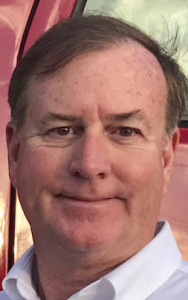Concerns over radio system heard
Published 2:37 pm Sunday, November 17, 2019
|
Getting your Trinity Audio player ready...
|
The Charlotte County Board of Supervisors (BOS) held a special called meeting on Thursday, Nov. 7, to address and answer functionality concerns that have arisen following its approval of a $2.8 million radio communication system to better equip the county’s fire, emergency medical services (EMS), police and school personnel.
The board room full of fire, EMS and police personnel were expecting to address the board with their concerns, but rather were met with a 10-page document that contained their questions and answers from Radio Communications of Virginia (RCV) representatives and the county’s consultant.
This led to a long and at times, heated discussion between supervisors and members of the audience.
Following a closed session meeting of the BOS on Oct. 24, supervisors made the decision to send out letters to the county’s seven fire chiefs, sheriff, school IT coordinator, E-911 coordinator, and rescue squad personnel asking them to submit their questions so that RCV, the awardee of the contract and the county’s consultant could answer them.
Since the Boards approval of the contract with RCV in August there have been many questions, and issues brought before the board including the need for Advance Encryption, not providing handheld radios for Virginia State Troopers covering the county and the most recent issue brought up by President of the Charlotte County Firefighters Association, Walt Bailey.
In the Oct. 30 edition of The Charlotte Gazette, Bailey said that the new system “does not even come close” to meeting the needs of the county’s fire and EMS.
During the Nov. 7 meeting, the most pressing question that was asked by the Charlotte County Firefighters Association concerned the amount of talk path channels that they had requested versus what was given by RCV.
The document stated, “The RFP that was submitted and accepted from the Radio Communications of Virginia falls far short of meeting the requirements that were stated in the RFP, we called for a trunking system with a minimum of 12 talk paths that dispatch could follow, not only was this in the RFP it was reiterated on June 22, 2018, by the county purchasing agent as addendum 3 item 2 of the addendum calls for 12 talk paths, item 3 of the addendum calls for a truck system, item 14 calls for all 12 talk paths to have dispatch console capabilities.
Section 3, Page 2 states that their proposal meets and exceeds RFP specifications.”
According to Bailey, each subsequent meeting that they had with RCV it was reiterated many times as to why their conventional system would not meet the needs of the fire departments.
“Our No. 1 concern is the safety of our people while operating in hazardous environments,” said Bailey. “Having to switch back and forth between nonrepeating channels to communicate with incoming units as well as dispatch creates severe inoperable issues that compromises the safety of our first responders. Why was this not addressed?”
The response to Bailey’s question in the document provided during the meeting was, “The main concern expressed for the fire department was coverage, not capacity. The contracted system has adequate channels to meet the needs of Charlotte County. There will be four countywide UHF P25 digital simulcast channels that can be assigned based on the needs of the county. An example would be one encrypted sheriff’s office dispatch channel, one fire and EMS dispatch channel and two operations channels. The channel plan includes multiple talk-around channels and the federal analog interoperability channels. The talk-around channels can be used locally as incident channels with any duress or mayday calls reverting to the main wide-area dispatch channel. Utilizing additional repeated channels for on-scene incidents can increase the logistical burden of a two-position dispatch center, increasing the chance of missing incoming radio and/or 911 calls.
According to the response given by RCV, repeated channels are not guaranteed to work in every building within the county. Loss of radio coverage is much more likely on a repeated channel inside a building than fire/ground talkarounds during an incident. “Designing a radio system to operate in all buildings within the County is both highly expensive and generally impractical.” The response stated.
During the meeting, Will Smithson, vice president of RCV, addressed the board, explaining the system. “One of the things that this system provides is 95% countywide coverage with affordable radios, so that comes with 95% reliability as well,” said Smithson “That means 95% of the places in the County you’ll be able to push the button on a portable radio and call.”
Smithson continued to say that the system is future-ready. “It’s expandable. It’s four channels, he said. “Conventional format is what’s contracted here along with 10 years of support and maintenance and hardware.
Smithson further stated, “With that future-readiness, the System can be expanded to be a trunking radio system through software upgrades down the road to the subscribers and infrastructure.”
Other questions in the presented document included radio encryption that does not meet advanced needs that the sheriff department says is much needed.
In the Oct. 2 edition of The Charlotte Gazette, Sheriff Jones stated, “With no encryption, anyone with a scanner can hear everything that we are saying,” said Sheriff Jones. “The very home you are getting ready to raid for drugs may be sitting there listening to it on the scanner.” Sheriff Jones also said he was concerned with citizens hearing Social Security numbers and other private information that is communicated between his officers.
EMS personnel addressed their concerns about not having adequate repeated channels for communicating with units and staff in several of multiple incidents.
The answers given to this question in the document stated, “The contracted system has adequate channels to meet the needs of Charlotte County. There will be four countywide UHF P25 digital simulcast channels that can be assigned based on the needs of the county. An example would be one encrypted Sheriff’s Office dispatch channel, one fire and EMS dispatch channel, and two operations channels.”
Questions from the school included an implementation timeframe, which was said to be prior to August 2020.
Being handed a document with answers to their questions, and not being able to address the board proved to be upsetting for some in the audience.
Chairman of the board, Garland H. “Butch” Hamlett, Jr., decided to have Bailey address the board.
During his address, Bailey again pushed the subject of the RFP, not meeting the needs that were asked for.
Sheriff Thomas Jones was also given the opportunity to address the board and it was during this time Jones confronted the county’s consultant George N. Condyles, IV, President & COO of The Atlantic Group of Companies, Inc. saying, “The thing that concerns me is we run the 911 dispatch center out of the Sheriff’s Department, and I would like knowing how much time these guys spent in the dispatch center.”
Condyles told Jones he had spent zero time in the dispatch center and was told he was “not allowed.”
Jones replied. “You’ve never set your foot in there. How do you give a recommendation to the board of supervisors … that’s the key control center.”
Breaking the contract with RCV also became a hot topic.
According to County Administrator Daniel Witt, the repercussions of breaking the contract with RCV are being studied by Russell Slayton, the county’s attorney.
Following the meeting, Chairman Hamlett said, “I will not vote nor support breaching the signed contract. RCV has done a superberlous job assisting Charlotte County. Breaking the contract would have a domino effect for the county,” he said. “Any supervisor who votes to break this contract, in my opinion, would not be doing justice and due diligence to the citizens of the county.”
Phenix/Aspen Supervisor Donna Fore, who says she supports the current RFP and is on the committee that recommended the RCV contract, said, “We tried to listen to everybody and to understand everything. You can have the best system, but if you can’t afford it, what good is it.”
According to Fore, the committee looked at three top things — requirements, technology and cost.”
“This communication system is the cream of the crop. It has the potential to be upgraded when the time comes, and the citizens can rest assured that their tax money will be spent wisely,” added Chairman Hamlett.
Still not satisfied with the answers received during the meeting, Bailey has submitted another set of 10 questions to the board and said, “volunteer first responders from all over the county left the comfort of their homes and their families in hopes of their thoughts and concerns being heard regarding the pending purchase of the county’s radio system. Instead, our voice was suppressed, which added fuel to the fire that should have never been ignited,” Bailey explained. “We had the opportunity to engage in dialogue where everyone would fully understand our concerns, but due to failed leadership, that didn’t happen. Further, we were told we could offer no additional input to the concerns that had already been expressed.”
In his letter to the Board of Supervisors that Bailey shared with The Charlotte Gazette he states, “Again we respectfully request that you terminate or rewrite this contract and pursue options that will meet our current need, is expandable and the county can afford. The worst thing the county can do is to continue pursuing a system that will not meet our needs.”
Supervisors are scheduled to meet on Nov. 13 for their regular monthly meeting, at which time, according to Witt, the county attorney will present the board with the impacts of breaking the contract with RCV will entail.





